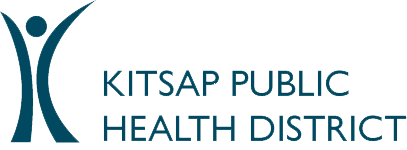Infection control benefits everyone.
Infection control prevents the spread of disease in healthcare settings. Following simple, evidence-based practices protects you, your patients and your community.
Stay up to date on best practices. Check out the resources below. We also offer:
- Help with communicable disease and reporting questions.
- Help with outbreak investigation and control.
- Visits from Public Health Consultants who provide public health information and updates.
When transferring a patient, hospitals and long-term care facilities must complete the
Inter-Facility Infection Prevention and Safety Form.
Precautions
- Infection Control Guidelines.
- Standard precautions for all patient care, CDC.
- Methicillin-resistant Staphylococcus aureus (MRSA) Basics, CDC
Injection safety
- Safe Injection Practices to Prevent Transmission of Infections to Patients, CDC.
- Preventing Unsafe Injection Practices, CDC.
- Injection Safety Resources for Providers, CDC.
Hand hygiene
Personal protective equipment
Environmental Cleaning
- Quick reference: How to clean equipment and surfaces, when to clean, what to use.
- Disinfection and sterilization guideline, CDC.
Other resources
- Infection control resources and links.
- Controlling norovirus.
- Influenza information.
- Healthcare-associated infections, CDC.
- Association for Professionals in Infection Control and Epidemiology.
- epiTrends, DOH.
Patient materials
Infection Control News
-
Health Advisory: Test perinatally exposed children for Hepatitis C
ACTIONS REQUESTED BE AWARE that Centers for Disease Control and Prevention (CDC) recommends that providers test children born to people with: TEST perinatally exposed children between the ages of 2-6 months (up to 17 months) old with an HCV RNA test. Do not test children less than 18 months old for HCV antibodies (anti-HCV). Testing for HCV antibodies (anti-HCV) in children less…
-
Health Advisory: Updated Recommendations for Adenovirus Testing and Reporting of Children with Acute Hepatitis of Unknown Etiology
Dear Kitsap healthcare colleagues, Please be aware of a May 11 CDC Health Advisory with UPDATED Recommendations for Adenovirus Testing and Reporting of Children with Acute Hepatitis of Unknown Etiology (linked and text included below) As of May 5, 2022, CDC and state partners are investigating 109 children with hepatitis of unknown origin across 25…
-
Health Advisory: Recommendations for Adenovirus Testing and Reporting of Children with Acute Hepatitis of Unknown Etiology
Dear Kitsap healthcare colleagues, Please see below for an important CDC Health Advisory on Recommendations for Adenovirus Testing and Reporting of Children with Acute Hepatitis of Unknown Etiology. The Kitsap Public Health District and Washington State Department of Health (DOH) request that healthcare partners report suspected cases to the Kitsap Public Health District 24/7 by…



